Is it possible to travel across Croatia without a car? Yes, as it turns out. Croatia has a comprehensive bus system which is fairly easy to use once you get the hang of it. Trains also connect a few major cities but we haven’t used any yet as the bus system is much more extensive. We’ve also used ferries, airplanes, taxis, and Uber to help get us around.
The Misadventures of Renting a Car in Croatia
When Daniel and I started planning our trip across Croatia, we weren’t sure whether or not to rent a car. Neither of us has experience driving vehicles outside of North America and we were both a little apprehensive at the thought of driving in a new country. We decided to postpone the decision until we arrived in Croatia and had a better sense of where we wanted to go.
Once we started planning, we ultimately decided that we did want to rent a car. I wanted to visit as many national parks in Croatia as possible and that seemed easiest achieved with our own set of wheels. However, we had a problem – we failed to get our International Driving Permits before leaving the United States.
What is an International Driving Permit you may ask? An IDP (also called an International Driver’s License) is essentially a translation of your United States driver’s license into other languages so it is understood by foreign officials. For U.S. citizens, IDPs are easily obtained by visiting your local AAA office and filling out an International Driving Permit form. This process becomes a lot more difficult once you’ve left the United States, however. We learned that we needed to mail the forms to the United States and then wait 4-6 weeks for them to be shipped. So that was a problem.
But is an IDP even required to drive a car in Croatia? This seemed unclear and we found conflicting information on online. According to the U.S. Embassy in Croatia web site, a U.S. driver’s license is sufficient to drive in Croatia. But we learned that many car rental companies do not rent to tourists without an IDP. And even if you do rent a car without an International Driving Permit, the cops may hassle you if you get pulled over. Some companies do provide IDPs online same day, which you can then print out yourself, but we also read that those were scams and not to be trusted.
Plan B: Traveling Croatia by Bus
So, what to do? We decided not to risk renting a car and to get friendly with the bus system instead. While we probably could have rented a car without an IDP and it would have been fine, I’m a risk averse person that gets twitchy at the thought of breaking rules. I would have been a nervous wreck during the entire car rental. Plus, driving a car isn’t cheap in Croatia. We’d be saving ourselves oodles of money by taking the bus.
We’d taken a number of short bus rides in our first few weeks in Croatia, but on Tuesday, October 29, we embarked on our most ambitious day of bus travel yet. We started the day in Brijuni National Park on the Istrian peninsula and ended the day at Plitvice Lakes National Park near the border with Bosnia and Herzegovena. This involved travelling for about 8 hours: taking the ferry from Brijuni to Fažana (15 minutes), taking a taxi from Fažana to Pula (20 minutes), taking a bus from Pula to Karlovac (3 hours), and taking another bus from Karlovac to Plitvice Lakes (1 hour 30 minutes). Lots of waiting around at bus terminals and confusion was involved as we bumbled around at each bus station but we sorted it out eventually.
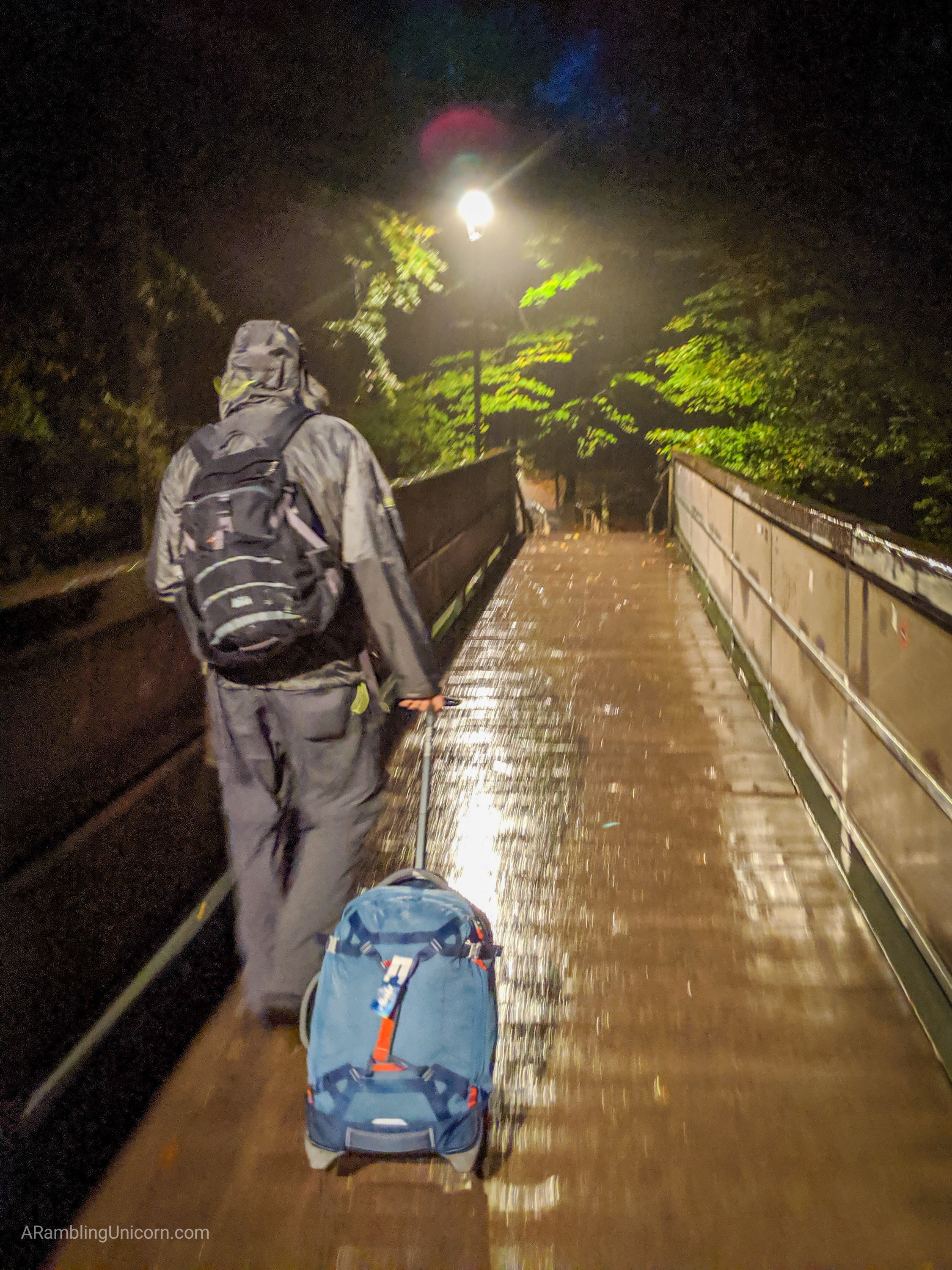
We ended the day by walking from the Plitvice Lakes bus stop to the hotel in a downpour. Thankfully it was a short walk.
We’ve taken the bus a number of times since then and it is becoming my preferred way to travel. We’ve had to adjust our itinerary slightly and do some additional advance planning but so far I haven’t minded. You can take the bus to a surprising number of locations in Croatia – if a major bus line won’t take you there then a local bus probably will. I find the bus relaxing as it enables me to mentally prepare for the next destination on our trip (and time to work on my blog).
Tips for Traveling Croatia by Bus
- Use an app like Rome2rio or GetByBus to help you plan your route. These will have all the major bus lines and cities included. I use both apps as sometimes bus routes will be available in one app and not another. Google Maps works well in other countries but does not work well for route finding in Croatia (at least not yet).
- There are a number of different major companies in Croatia that operate bus lines. FlixBus, Brioni Pula, and Arriva Autotrans are just a few of them. Be sure to note the name of the company as this will help ensure that you get on the right bus.
- You can usually buy your bus ticket onboard the bus. The major buses have a second employee who collects tickets and also sells them after the bus leaves (like a train conductor). However ask before you board – at some bus stations the driver will direct you to buy the ticket at the ticket office inside the bus station.
- You can also usually buy your ticket online before boarding the bus, although online sales typically close the day before departure. Since we are travelling in the off season, we haven’t run into any sold out buses and so we usually don’t buy in advance. However, during the busy summer months, buying tickets in advance is recommended.
- Storing luggage under the bus usually requires a small fee (typically $2-$3 per bag).
- Once you arrive in a major city, research the local city bus system to find out how to get around. The above advice chiefly applies to travel between major cities. Most cities also have their own local bus systems as well. These buses will take you to destinations not included in Rome2Rio or GetByBus.
Happy riding!
Featured Resources
You may also like these other articles about our travels in Croatia:
- The Walled City: A Walk Around Dubrovnik’s City Walls and Fort Lovrijenac
- Mount Mosor: A Popular Hike with Fabulous Views near Split, Croatia
- Pirates and Kidnapped Treasure: Hiking along Lim Fjord in Vrsar, Croatia
- Vidova Gora Trail: Hiking the Tallest Mountain in the Adriatic

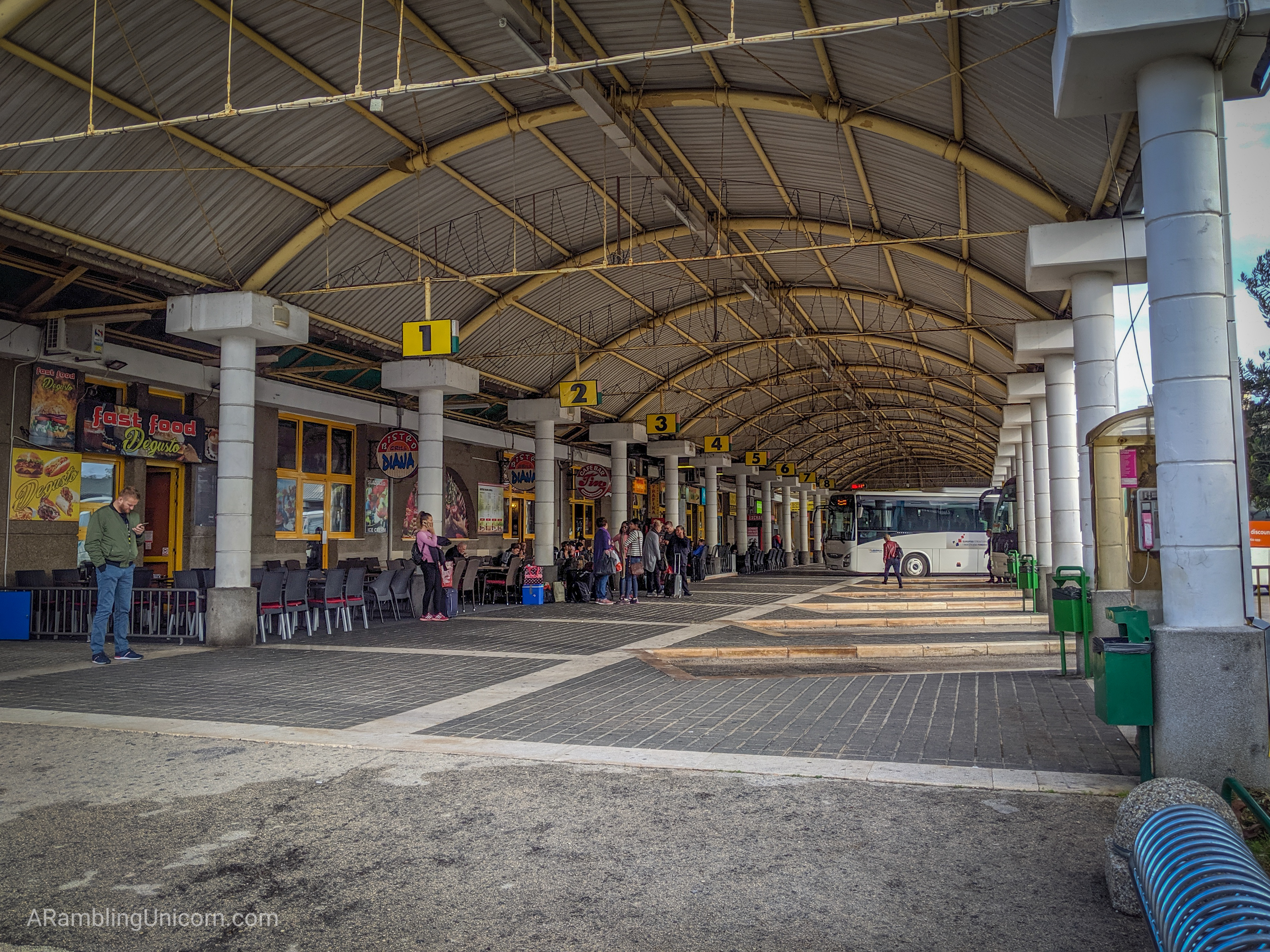
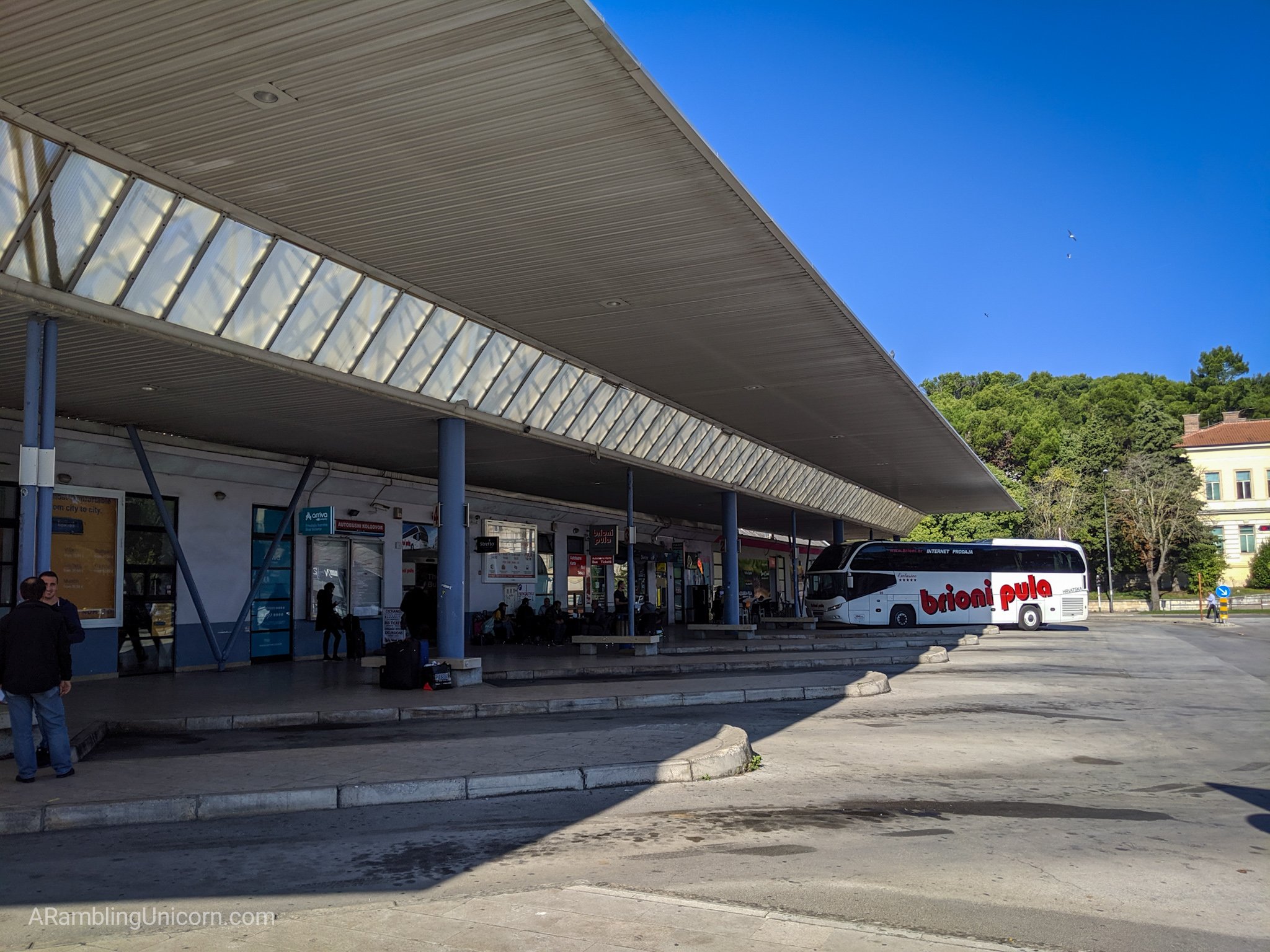
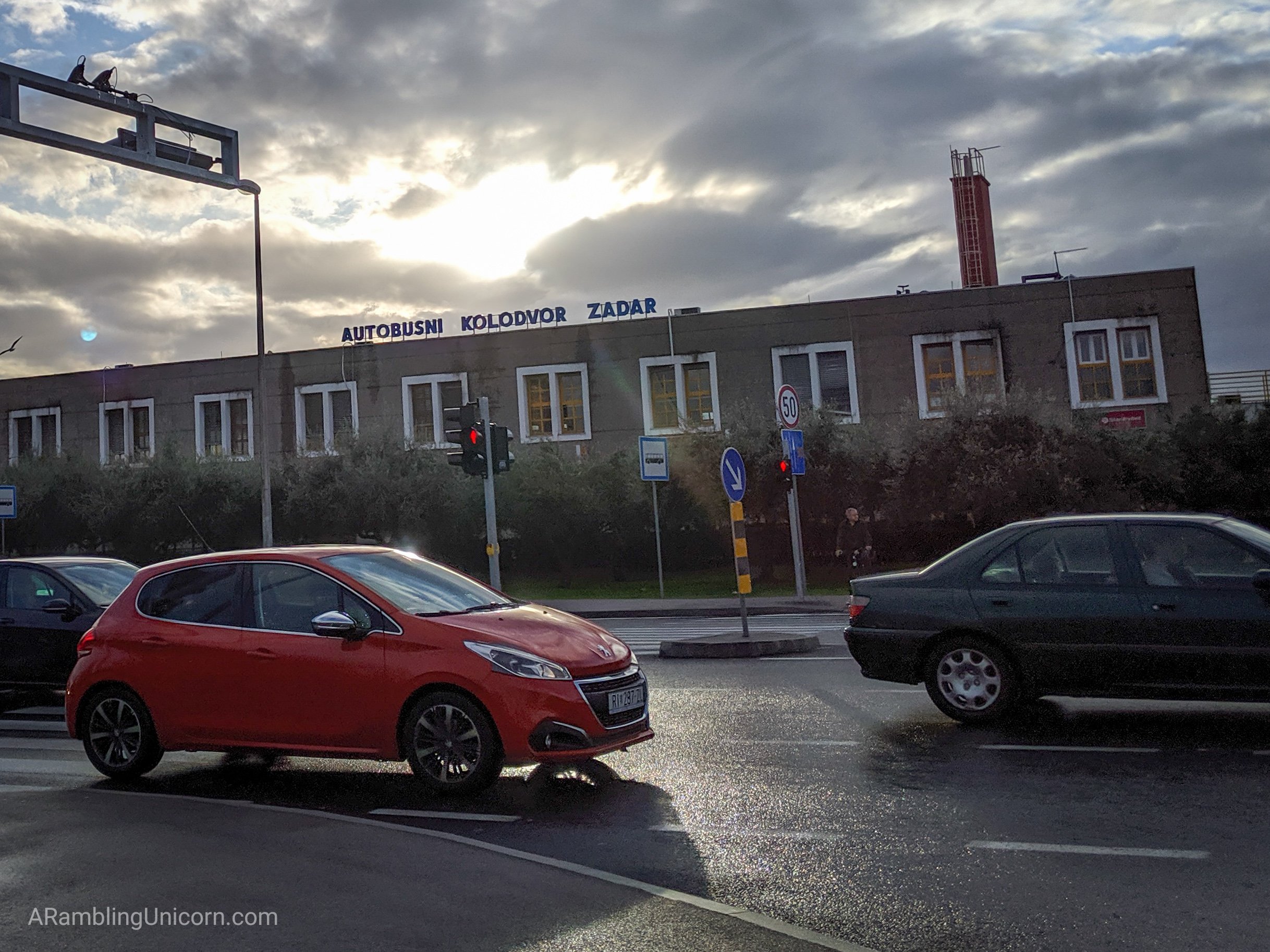
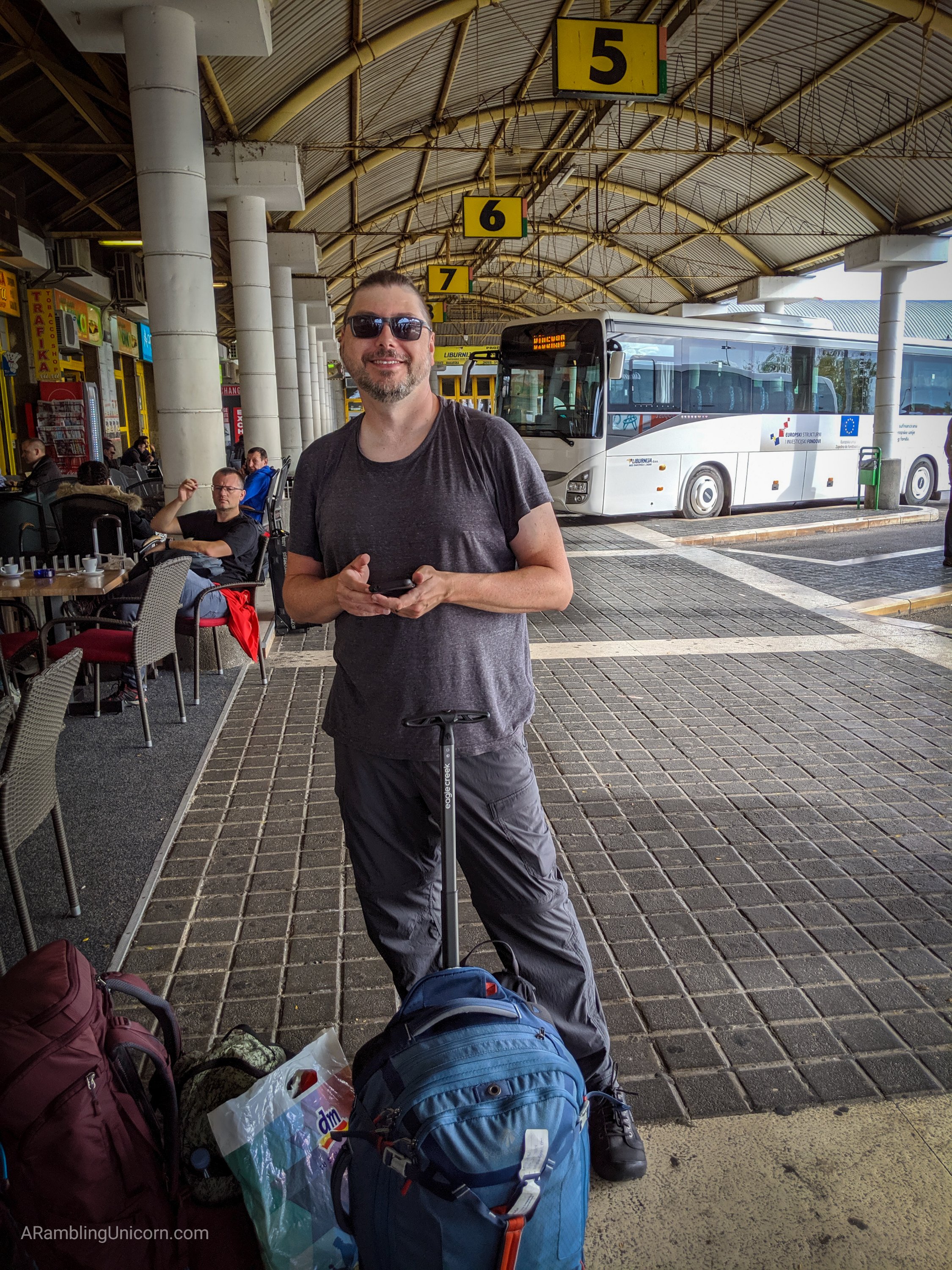
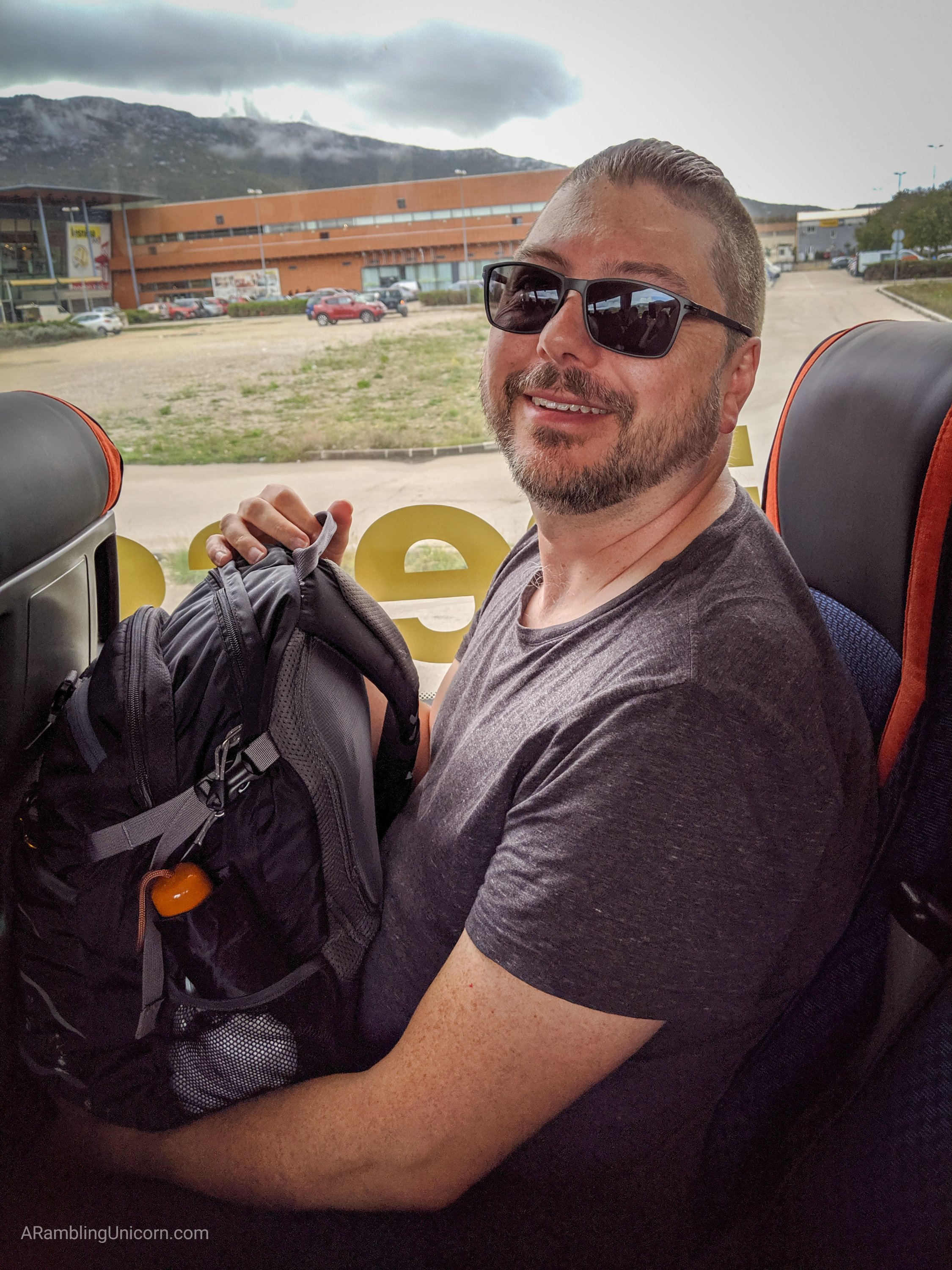
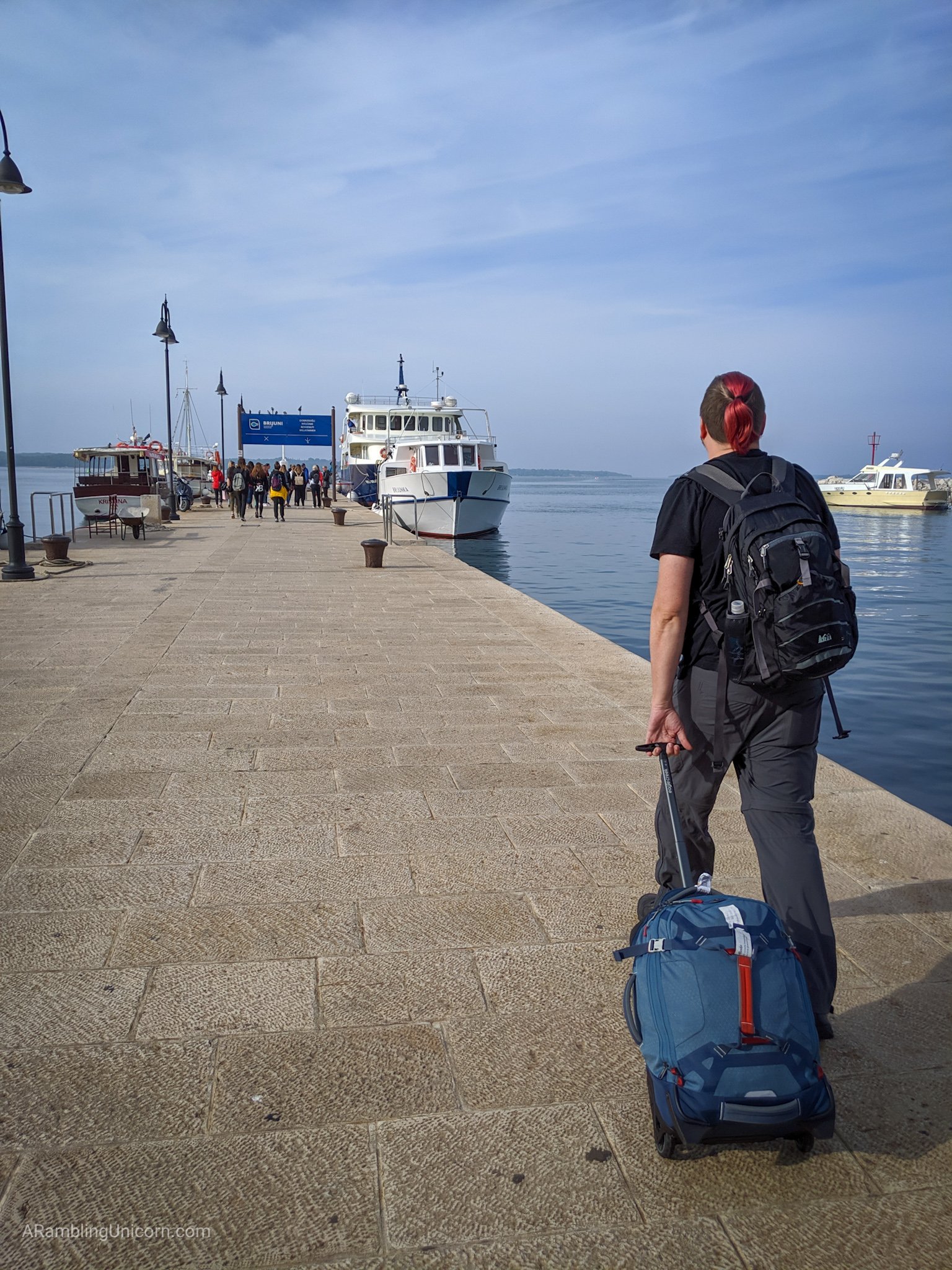
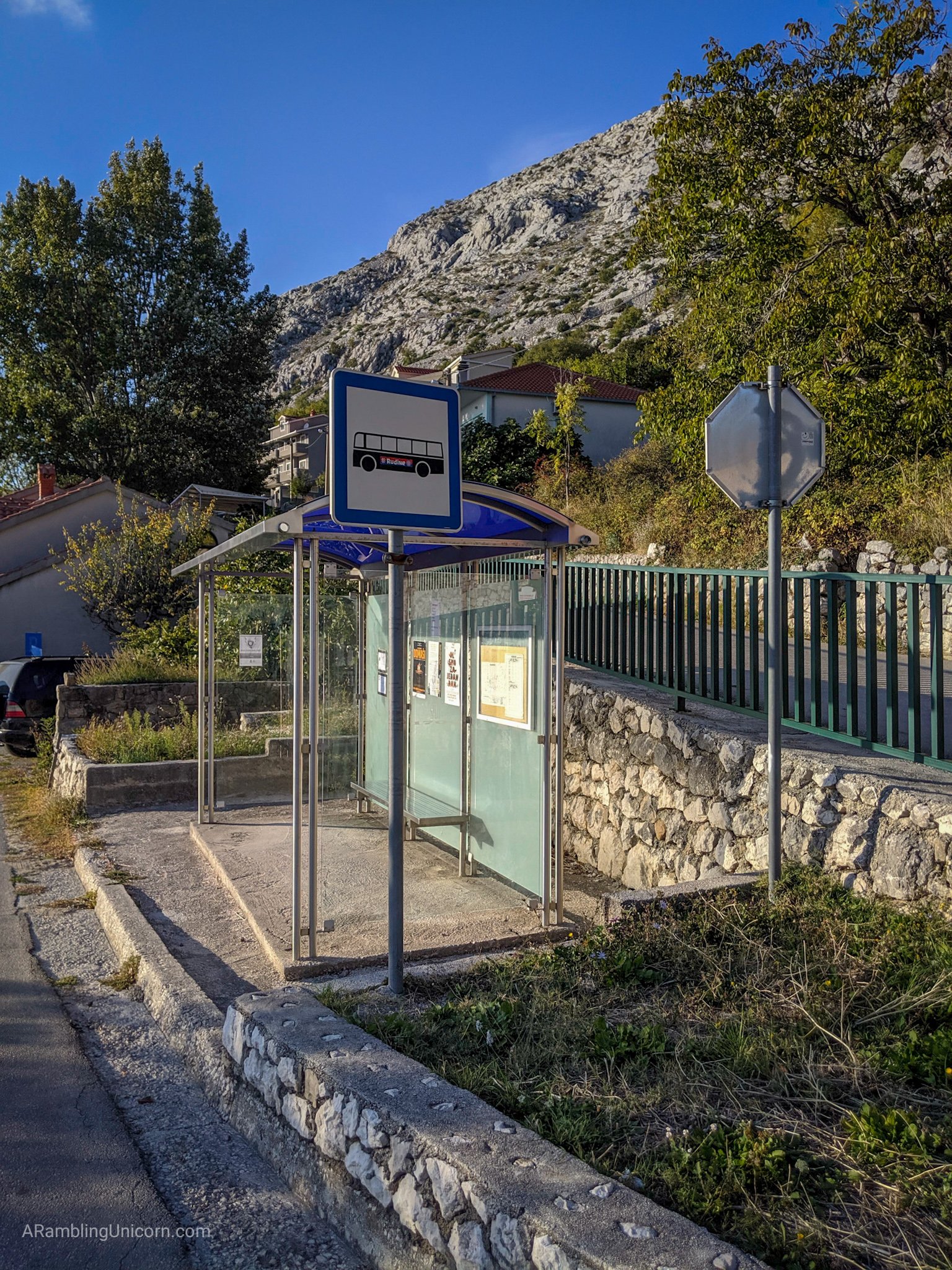


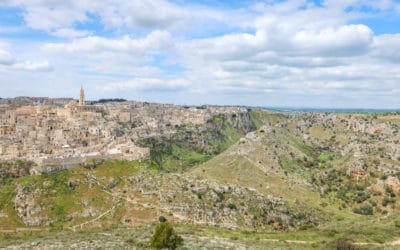


Katy, if you haven’t checked out https://croatiatraveller.com/blog/, I recommend it and she has extensive up-to-date info about how to get around. I see you visited Plitvice; you’re so close to Zagreb you really ought to check it out. If you do, we loved ZigZag Apartments. I had to laugh when you said the trails are well sign-posted as we got lost for hours there. Happy trails.